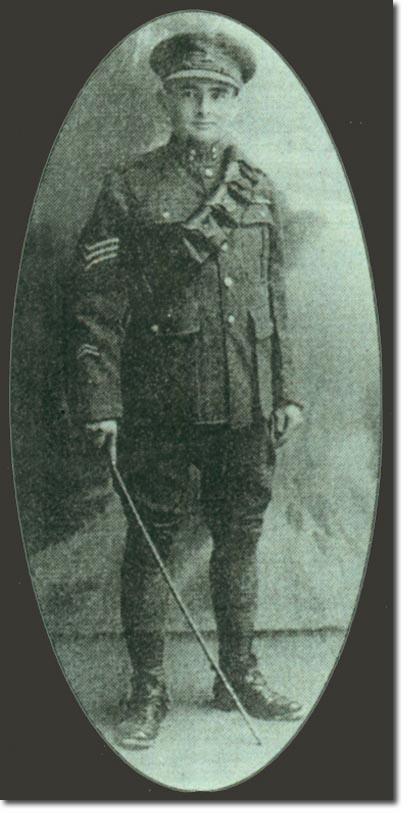|
|


|
|
Joshua Myron, who died in August 2000 in New York aged 102, was a company sergeant in the 38th Battalion, part of a camel-mounted brigade of volunteers which fought with the British against the Turks in Palestine during the First World War.
Joshua Miransky (he later changed his name to Myron) was then aged 20. He heard the call to volunteer from Jabotinsky, who had arrived in Palestine to lead a campaign to enlist Jews, and from Major James de Rothschild, son of Baron Edmond de Rothschild, from the French branch of the banking family. From a balcony in Herzl Street, Rehovot, Jimmy de Rothschild called on the assembled Jews - who had gathered from neighbouring settlements to hear him - to join the Jewish Legion and to help the British to liberate Palestine. Miransky decided to volunteer, and became a sergeant in charge of transport in the 38th Battalion Royal Fusiliers. Wearing British uniforms with the Star of David and the menorah (seven-branched candlestick) as their insignia, the Jewish Legion moved by camel to engage the enemy. Joshua Miransky was born on August 17 1897 at Rishon Le-Zion, the first Jewish settlement to be established in Palestine by settlers from abroad. Joshua was one of three children of Feibel Miransky, a Haluz (Hebrew for pioneer), who with a group of young people had left Russia in 1883 (well before the birth of the Zionist movement) and emigrated to Palestine to help build a new Hebrew society based on agricultural settlements. Feibel Miransky set up a carriage service which ran between Rishon Le-Zion and Jaffa, and initially he acted as the coachman. Joshua would sometimes join his father on the dusty, bumpy road to Jaffa - which was dubbed Derech Ha'shodedim (the way of the pirates) on account of the men who hid in the dunes at the roadside, poised to attack and rob travellers. Joshua grew up in Rishon Le-Zion and attended Talmud Tora school, later going to Ezra school, at Neve Zedek, where studies were conducted in German. Life at Rishon was tough and Joshua, along with the other members of this small community, suffered enormously as the settlement faced bankruptcy and collapse. It was eventually rescued by Baron Edmond de Rothschild, who provided the settlers with funds and established a large vineyard for them to work. After the war, in 1920, Myron went to America with the idea of studying veterinary medicine at Columbia University. However, he ended up studying pharmacy at Albany College of Pharmacy. In the early 1930s, by then married, he returned to British Mandate Palestine. But life in Palestine was hard and grim, and he decided to return to America. He settled in Suffern, New York, and commuted daily to Manhattan, where he owned two pharmacies. During the Second World War, Myron helped delegates of Haganah (the Jewish illegal underground militia in Palestine) in America to obtain weapons and dispatch them to Palestine. In 1967, Myron sold his pharmacies and retired. But he remained active in raising money for Israel and he was a member of UJA, a Zionist movement. The Myrons' home in New York was always open to visitors, especially from Rishon Le-Zion, who would gather there every year to celebrate Passover. At the age of 95, Myron travelled to Israel and paid a visit to Rishon Le-Zion. He spent two days at the local cemetery, cleaning and maintaining the graves of his relatives before returning to America. Joshua Myron married, in 1926, Sybil Berkowitz, who died in a motor accident in 1973. They had a daughter. |
Armed Forces | Art and Culture | Articles | Biographies | Colonies | Discussion | Glossary | Home | Library | Links | Map Room | Sources and Media | Science and Technology | Search | Student Zone | Timelines | TV & Film | Wargames